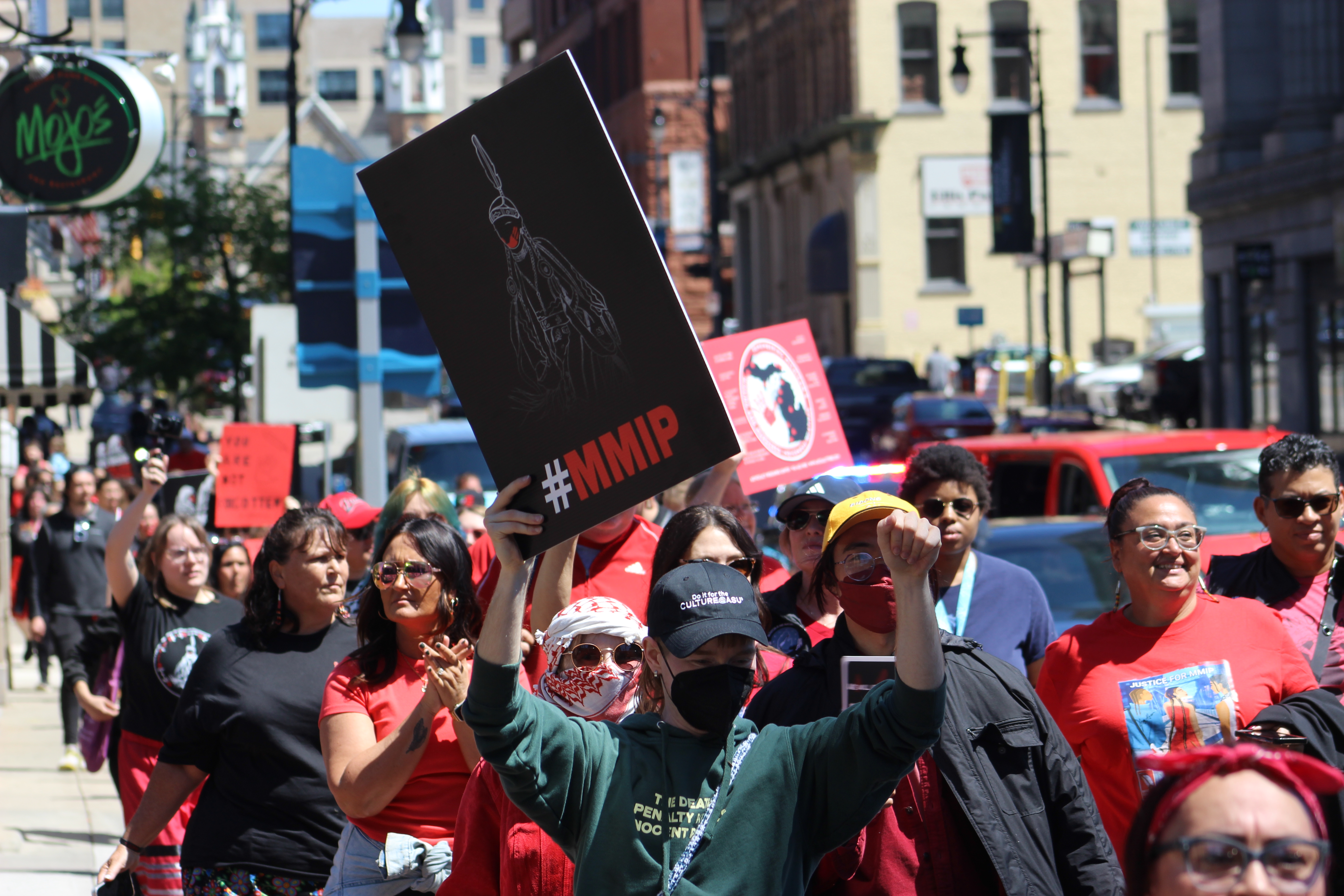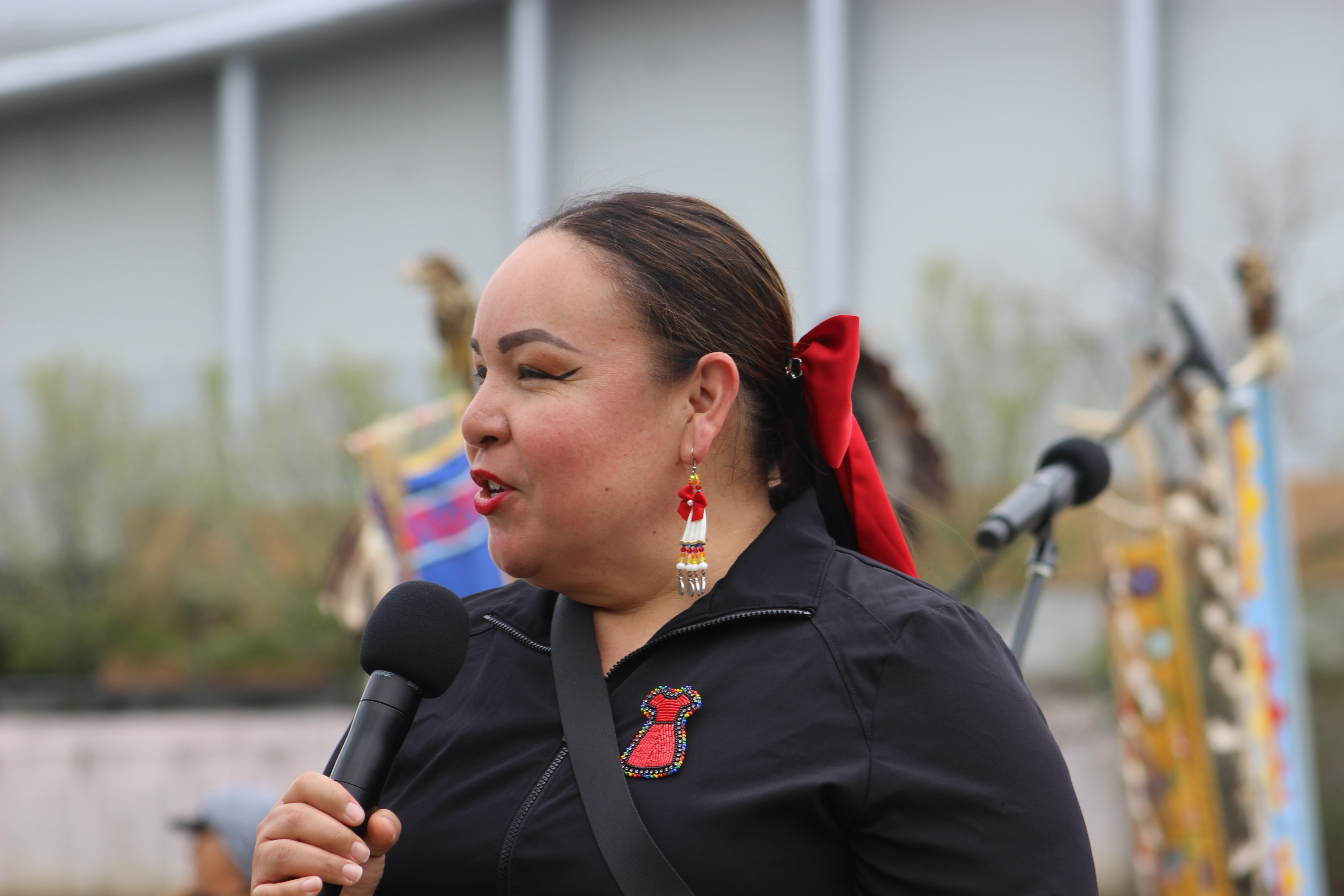
- Details
- By Levi Rickert
GRAND RAPIDS, Mich. — Hundreds of Anishinaabeg and supporters gathered at Ah-Nab-Awen Park along the banks of the Owashtinong (Grand River) in downtown Grand Rapids, Michigan, on Monday, May 5, 2025, to observe Missing and Murdered Indigenous Persons Awareness Day (MMIP Awareness Day)—one of dozens of similar events held across the nation.
The crowd compised tribal citizens from Michigan tribes and allies from across the state of Michigan. Emily Paski. tribal liaison and legal counsel for Michigan Govenor Gretchen Whitmer read proclamatioin from the governor.
May 5 was intentionally chosen to raise awareness about the epidemic of violence against Indigenous people. The date honors Hanna Harris, a 21-year-old member of the Northern Cheyenne Tribe who went missing on July 4, 2013. In her memory, Montana’s congressional delegation successfully urged the U.S. Senate to designate May 5 as a National Day of Awareness.
https://nativenewsonline.net/currents/hundreds-rally-in-grand-rapids-to-bring-awareness-to-mmip-issue#sigProId1ffb64ebcd
Melissa Issac (Saginaw Chippewa Tribe of Michigan), who leads the Indigenous Education Initiative for the Michigan Department of Education, served as the emcee for the rally that included a march through the streets of Grand Rapids.

"This is the generation that can make a difference. We can make the difference to stop the violence against our people," Issac said. "If you think this type of gathering doesn't make a difference, it does. There is healing when peoplel come together."
Photographs by Levi Rickert
More Stories Like This
Native News Weekly (August 25, 2024): D.C. BriefsUS Presidents in Their Own Words Concerning American Indians
Flanagan Calls ICE Agents ‘out of control’ after Woman Killed in Minneapolis
American Indigenous Tourism Association Announces New Board Members
Deb Haaland Talks Youth, Jobs and Opportunity in Governor Bid
Help us defend tribal sovereignty.
At Native News Online, our mission is rooted in telling the stories that strengthen sovereignty and uplift Indigenous voices — not just at year’s end, but every single day.
Because of your generosity last year, we were able to keep our reporters on the ground in tribal communities, at national gatherings and in the halls of Congress — covering the issues that matter most to Indian Country: sovereignty, culture, education, health and economic opportunity.
That support sustained us through a tough year in 2025. Now, as we look to the year ahead, we need your help right now to ensure warrior journalism remains strong — reporting that defends tribal sovereignty, amplifies Native truth, and holds power accountable.
 The stakes couldn't be higher. Your support keeps Native voices heard, Native stories told and Native sovereignty defended.
The stakes couldn't be higher. Your support keeps Native voices heard, Native stories told and Native sovereignty defended.
Stand with Warrior Journalism today.
Levi Rickert (Potawatomi), Editor & Publisher



